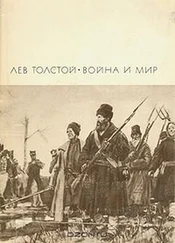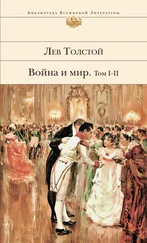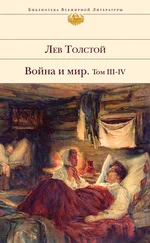| "How plainly all these young people wear their hearts on their sleeves!" said Anna Mikhaylovna, pointing to Nicholas as he went out. "Cousinage-dangereux voisinage;" * she added. * Cousinhood is a dangerous neighborhood. |
- Как секреты-то этой всей молодежи шиты белыми нитками! - сказала Анна Михайловна, указывая на выходящего Николая. - Cousinage dangereux voisinage, [Бедовое дело - двоюродные братцы и сестрицы,] - прибавила она. |
| "Yes," said the countess when the brightness these young people had brought into the room had vanished; and as if answering a question no one had put but which was always in her mind, "and how much suffering, how much anxiety one has had to go through that we might rejoice in them now! |
- Да, - сказала графиня, после того как луч солнца, проникнувший в гостиную вместе с этим молодым поколением, исчез, и как будто отвечая на вопрос, которого никто ей не делал, но который постоянно занимал ее. - Сколько страданий, сколько беспокойств перенесено за то, чтобы теперь на них радоваться! |
| And yet really the anxiety is greater now than the joy. |
А и теперь, право, больше страха, чем радости. |
| One is always, always anxious! |
Всё боишься, всё боишься! |
| Especially just at this age, so dangerous both for girls and boys." |
Именно тот возраст, в котором так много опасностей и для девочек и для мальчиков. |
| "It all depends on the bringing up," remarked the visitor. |
- Всё от воспитания зависит, - сказала гостья. |
| "Yes, you're quite right," continued the countess. "Till now I have always, thank God, been my children's friend and had their full confidence," said she, repeating the mistake of so many parents who imagine that their children have no secrets from them. "I know I shall always be my daughters' first confidante, and that if Nicholas, with his impulsive nature, does get into mischief (a boy can't help it), he will all the same never be like those Petersburg young men." |
- Да, ваша правда, - продолжала графиня. - До сих пор я была, слава Богу, другом своих детей и пользуюсь полным их доверием, - говорила графиня, повторяя заблуждение многих родителей, полагающих, что у детей их нет тайн от них. - Я знаю, что я всегда буду первою confidente [поверенной] моих дочерей, и что Николенька, по своему пылкому характеру, ежели будет шалить (мальчику нельзя без этого), то всё не так, как эти петербургские господа. |
| "Yes, they are splendid, splendid youngsters," chimed in the count, who always solved questions that seemed to him perplexing by deciding that everything was splendid. "Just fancy: wants to be an hussar. |
- Да, славные, славные ребята, - подтвердил граф, всегда разрешавший запутанные для него вопросы тем, что всё находил славным. - Вот подите, захотел в гусары! |
| What's one to do, my dear?" |
Да вот что вы хотите, ma ch?re! |
| "What a charming creature your younger girl is," said the visitor; "a little volcano!" |
- Какое милое существо ваша меньшая, - сказала гостья. - Порох! |
| "Yes, a regular volcano," said the count. "Takes after me! |
- Да, порох, - сказал граф. - В меня пошла! |
| And what a voice she has; though she's my daughter, I tell the truth when I say she'll be a singer, a second Salomoni! |
И какой голос: хоть и моя дочь, а я правду скажу, певица будет, Саломони другая. |
| We have engaged an Italian to give her lessons." |
Мы взяли итальянца ее учить. |
| "Isn't she too young? |
- Не рано ли? |
| I have heard that it harms the voice to train it at that age." |
Говорят, вредно для голоса учиться в эту пору. |
| "Oh no, not at all too young!" replied the count. "Why, our mothers used to be married at twelve or thirteen." |
- О, нет, какой рано! - сказал граф. - Как же наши матери выходили в двенадцать-тринадцать лет замуж? |
| "And she's in love with Boris already. |
-Уж она и теперь влюблена в Бориса! |
| Just fancy!" said the countess with a gentle smile, looking at Boris' and went on, evidently concerned with a thought that always occupied her: "Now you see if I were to be severe with her and to forbid it... goodness knows what they might be up to on the sly" (she meant that they would be kissing), "but as it is, I know every word she utters. |
Какова? - сказала графиня, тихо улыбаясь, глядя на мать Бориса, и, видимо отвечая на мысль, всегда ее занимавшую, продолжала. - Ну, вот видите, держи я ее строго, запрещай я ей... Бог знает, что бы они делали потихоньку (графиня разумела: они целовались бы), а теперь я знаю каждое ее слово. |
| She will come running to me of her own accord in the evening and tell me everything. |
Она сама вечером прибежит и всё мне расскажет. |
| Perhaps I spoil her, but really that seems the best plan. |
Может быть, я балую ее; но, право, это, кажется, лучше. |
| With her elder sister I was stricter." |
Я старшую держала строго. |
| "Yes, I was brought up quite differently," remarked the handsome elder daughter, Countess Vera, with a smile. |
- Да, меня совсем иначе воспитывали, - сказала старшая, красивая графиня Вера, улыбаясь. |
| But the smile did not enhance Vera's beauty as smiles generally do; on the contrary it gave her an unnatural, and therefore unpleasant, expression. |
Но улыбка не украсила лица Веры, как это обыкновенно бывает; напротив, лицо ее стало неестественно и оттого неприятно. |
| Vera was good-looking, not at all stupid, quick at learning, was well brought up, and had a pleasant voice; what she said was true and appropriate, yet, strange to say, everyone-the visitors and countess alike-turned to look at her as if wondering why she had said it, and they all felt awkward. |
Старшая, Вера, была хороша, была неглупа, училась прекрасно, была хорошо воспитана, голос у нее был приятный, то, что она сказала, было справедливо и уместно; но, странное дело, все, и гостья и графиня, оглянулись на нее, как будто удивились, зачем она это сказала, и почувствовали неловкость. |
| "People are always too clever with their eldest children and try to make something exceptional of them," said the visitor. |
- Всегда с старшими детьми мудрят, хотят сделать что-нибудь необыкновенное, - сказала гостья. |
| "What's the good of denying it, my dear? |
- Что греха таить, ma ch?re! |
| Our dear countess was too clever with Vera," said the count. "Well, what of that? She's turned out splendidly all the same," he added, winking at Vera. |
Графинюшка мудрила с Верой, - сказал граф. -Ну, да что ж! всё-таки славная вышла, - прибавил он, одобрительно подмигивая Вере. |
| The guests got up and took their leave, promising to return to dinner. |
Гостьи встали и уехали, обещаясь приехать к обеду. |
| "What manners! |
- Что за манера! |
| I thought they would never go," said the countess, when she had seen her guests out. |
Уж сидели, сидели! - сказала графиня, проводя гостей. |
| CHAPTER XIII |
XIII |
| When Natasha ran out of the drawing room she only went as far as the conservatory. |
Когда Наташа вышла из гостиной и побежала, она добежала только до цветочной. |
| There she paused and stood listening to the conversation in the drawing room, waiting for Boris to come out. |
В этой комнате она остановилась, прислушиваясь к говору в гостиной и ожидая выхода Бориса. |



